BEST Vegan Sources of Iodine For Vegetarians [LIST]
Iodine is an essential mineral that plays a crucial role in thyroid function and overall health.
While it's commonly found in seafood and dairy products, there are plenty of vegan sources of iodine for vegetarians available to help you meet your daily nutrient needs.
In this article, we'll explore some of the top iodine sources for vegans for vegetarians, so you can make sure you're getting enough of this vital nutrient in your diet.
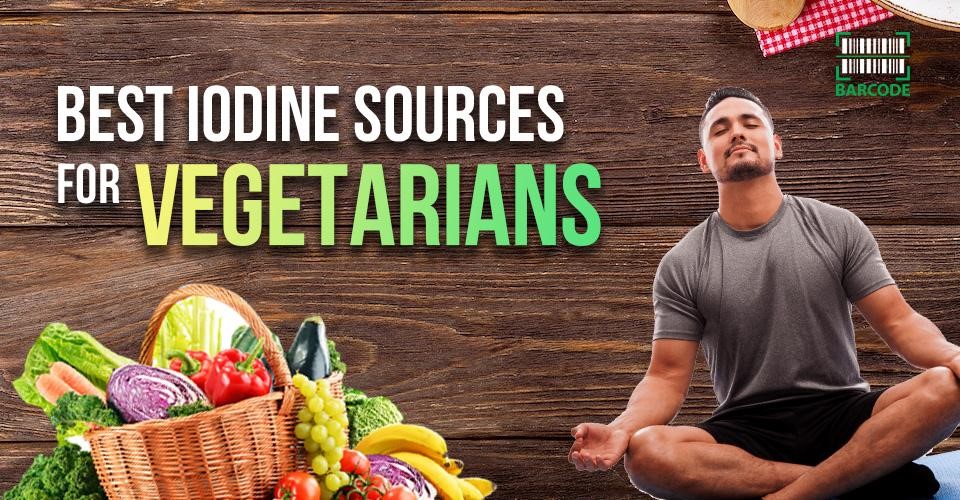
Best iodine sources for vegetarians
Do Vegans Suffer From Iodine Deficiency?
Iodine is an essential mineral required for proper thyroid function and overall health.
While many plant-based foods are good sources of iodine, vegans may be at risk of iodine deficiency if they do not consume enough iodine-rich foods or use iodized salt.
In one study, the Federal Institute for Risk Assessment in Berlin discovered that iodine shortages affected one-third of the vegans tested.
But the cross-sectional study had a far smaller sample size, just 72 adults.
As such, 36 people who followed a plant-based diet had their blood and urine samples compared to the other 36 participants, who were omnivores.
Julieanna Hever, MS RD CPT says that vegans must make sure they consume enough iodine.
"Iodine continues to be an issue for international public health. And among those at a higher risk for iodine deficiency are vegans”, she said.
However, with careful planning, vegans can easily meet their iodine needs by consuming seaweed, fortified plant milk, and supplements.
Thus, it's important for vegans to monitor their iodine intake and speak with a healthcare professional if they have concerns about their iodine status.
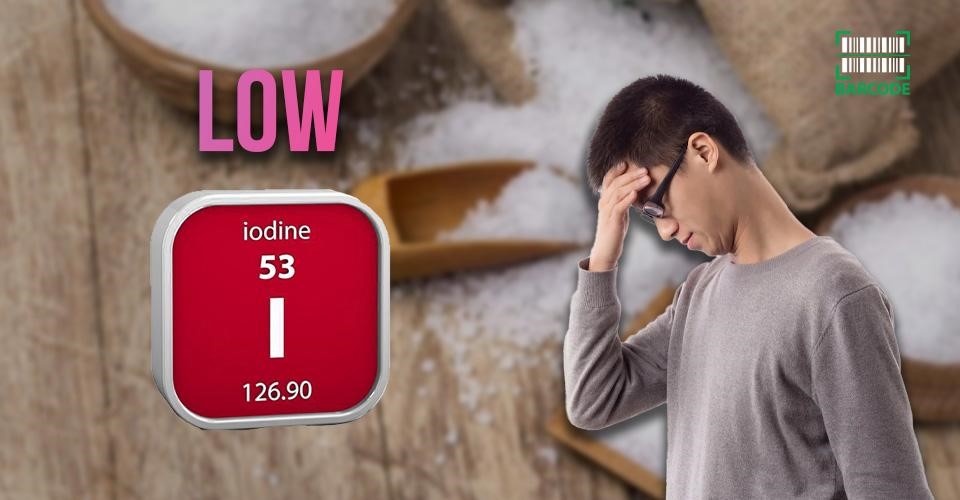
Vegans suffer from iodine deficiency
Veganism and Iodine Intake: Two Possible Roadblocks
Iodine is crucial for everyone, but it is especially necessary for vegans. Iodine insufficiency among vegans is quite common for two reasons:
Rare vegan iodine sources
Fish, eggs, and cow's milk are just a few of the animal-based foods that are among the richest sources of iodine.
Vegans have fewer alternatives when choosing their usual dietary sources of iodine because they don't consume these foods.
The most common source of iodine in the Western diet is iodized salt, which is also not typically used in vegan diets.
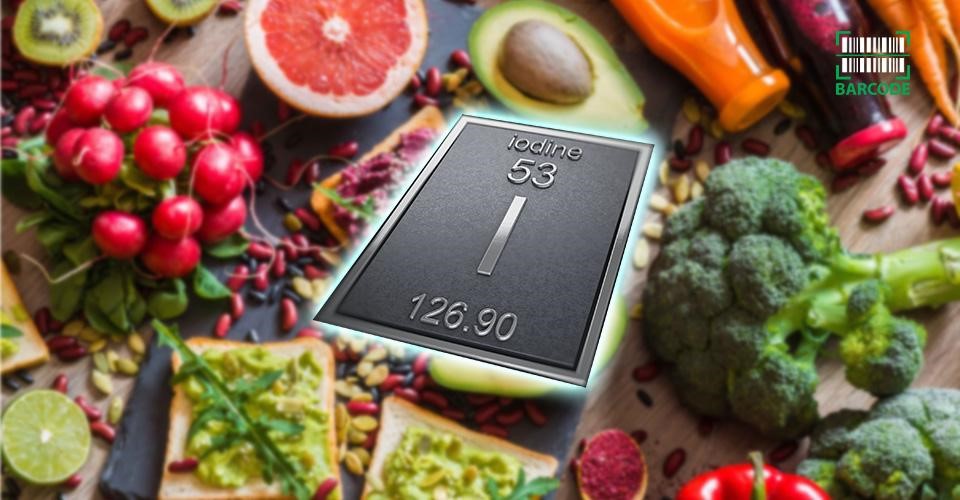
There are few vegan iodine sources
Some vegan foods, such as seaweed, are good sources of iodine, but the iodine content can vary greatly depending on the type and preparation.
Other vegan sources of iodine include fortified plant milk and supplements. However, even with these sources, vegans may still be at risk of iodine deficiency if they do not consume enough of these rare vegan iodine sources.
Iodine absorption antagonists
Another potential roadblock to adequate iodine intake in a vegan diet is the presence of iodine absorption antagonists.
These are compounds that interfere with the absorption of iodine in the body. Examples of iodine absorption antagonists include certain types of cruciferous vegetables like broccoli and kale, as well as soy products.
While these foods are generally healthy and beneficial for vegans, they can potentially impact iodine absorption if consumed in large amounts.
Also, cooking these vegetables can help reduce their impact on iodine absorption, and consuming sources of iodine alongside these foods can help counteract their effects.
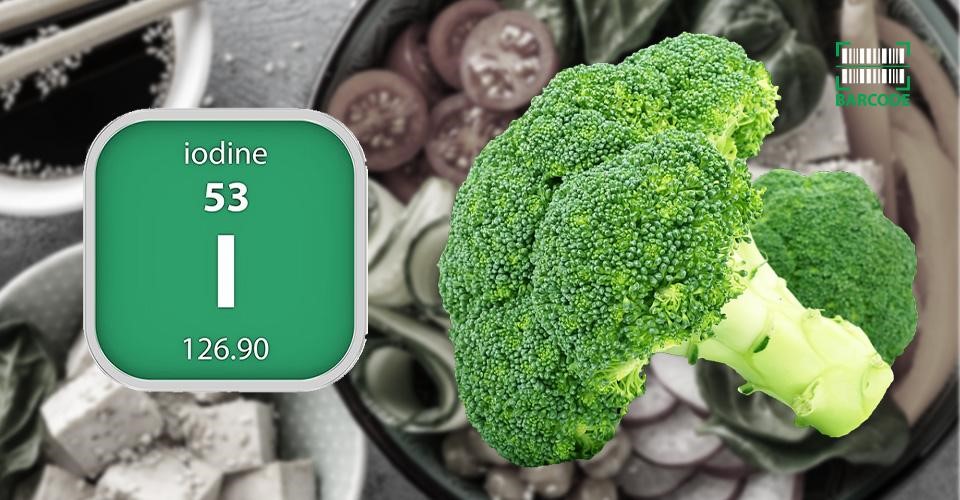
Broccoli and kale are iodine-absorption antagonists
Vegans who consume large amounts of iodine absorption antagonists may want to consider iodine supplements or seaweed as additional sources of iodine.
Yet, vegans need to be aware of these potential iodine absorption antagonists and take steps to ensure adequate iodine intake.
What Are Some Iodine Sources For Vegans?
Here are 7 iodine sources vegan should look for to get iodine.
Dried sea vegetables
Iodine levels in sea vegetables including kelp, nori, kombu, wakame, and arame are more than sufficient for an entire day.
Additionally, the mineral can be found in popular vegan thickeners like agar-agar and carrageenan.
Due to the fact that sea vegetables' iodine contents vary, it is not necessary to consume them every day.
You can use them in sushi, miso soup, seaweed salads, or rice bowls to change up your weekly menu.
Dried sea vegetables benefit from the 50 mcg of iodine that is present in one liter of ocean water.
The dosage is relatively large, containing 40-60 mcg in a single dried sheet, therefore, pay special attention to your portions to prevent consuming too much iodine.
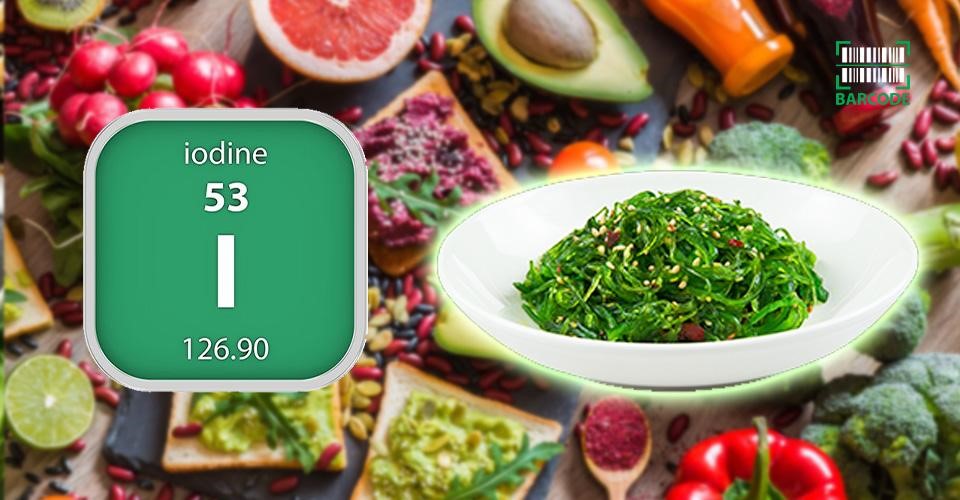
Dried sea vegetables are iodine-rich vegetables
Fruits
Fruits are a great addition to any vegan diet and can serve as excellent vegan iodine sources.
Some of the favorite fruits of vegetarians and vegans happen to be rich in essential vitamins, minerals, and iodine.
Sweet berries like strawberries offer 8% of the RDI of iodine per serving, making them a delicious source of iodine.
Eating a serving of strawberries a day can provide an additional source of iodine in the diet.
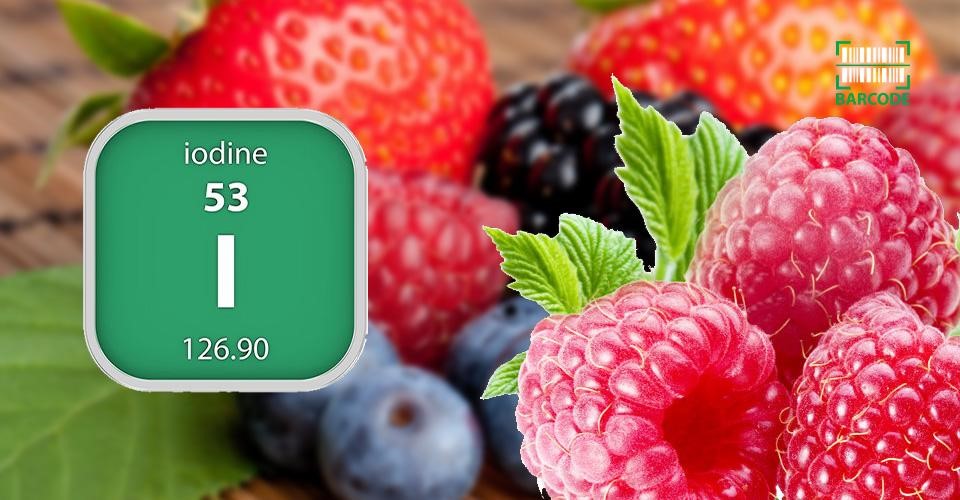
Sweet berries
Dried fruits like prunes are also a source of iodine, with 13 mcg per serving. Adequate iodine intake is important for proper thyroid hormone function, so vegans should check the iodine content of their favorite fruits.
Cranberries are a standout, boasting a whopping 400 mcg of iodine in just a half-cup serving, which is more than three times the RDI for healthy adults.
By incorporating these plant based iodine sources into their diets, vegans can ensure they are meeting their daily iodine requirements.
Vegetables
Vegetables are a staple in any healthy diet and can be moderate vegan sources of iodine.
While not all vegetables are high in iodine, there are several that can offer a boost to iodine intake in a vegan diet.
Green beans, for example, offer 2% of the RDI of iodine per serving and are also a good vegan source of calcium.
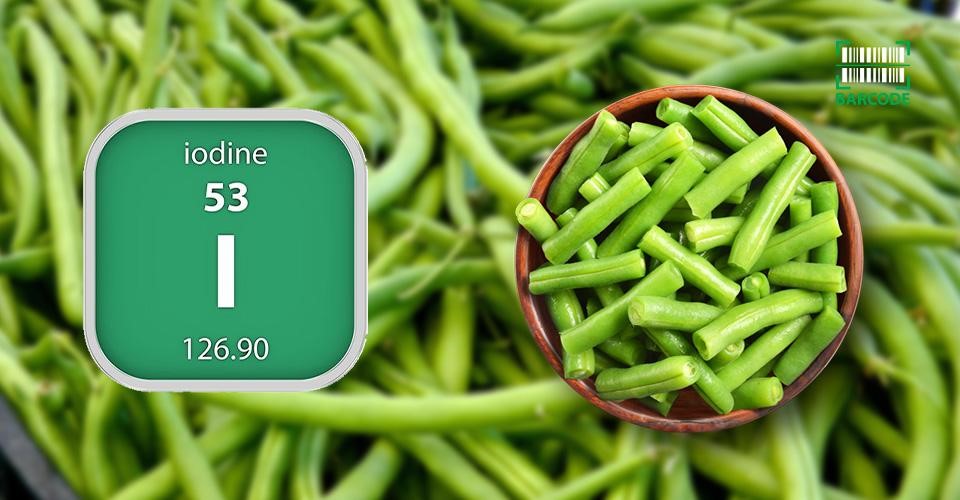
Green beans are among the best sources of iodine for vegans
Canned corn is another vegetable that can massively pump up iodine intake, with 14 mcg of iodine per serving.
When considering what vegetables are high in iodine, it's important to note that the iodine content of vegetables can vary greatly depending on factors like the soil in which they were grown.
Vegans should check the labels and do some research to identify the best vegan sources of iodine in vegetables.
By incorporating these vegetables into their diets, vegans can ensure they are meeting their daily iodine requirements.
Leafy greens
Leafy greens are an excellent addition to any vegan diet and can offer extra iodine to vegans who eat them.
While most veggies contain some iodine, leafy greens can be a decent source of iodine due to their higher iodine content.
Watercress is one such example of a leafy green that has high iodine levels. By adding this veggie to their daily diet, vegans can boost their iodine intake.
However, it's important to note that the amount of iodine consumed daily from leafy greens will depend on the amount consumed and the specific iodine content of the greens.
Vegans should research the iodine content of their favorite leafy greens to ensure they are meeting their daily iodine requirements.
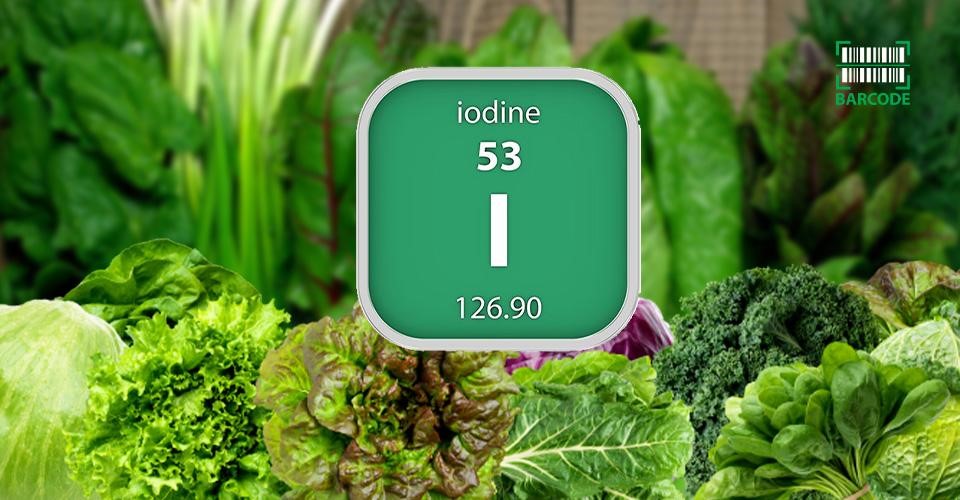
Leafy greens are ideal iodine foods vegan
Iodized salt
Iodized salt is one of the easiest and most common sources of the nutrient iodine, and can be a valuable addition to a vegan diet.
It is fortified with iodine, and just a daily dose of 150 mcg can be obtained by adding just one-half to a three-fourths teaspoon of salt to meals.
Adding iodized salt to vegan dishes is a simple way to ensure that vegans are getting enough iodine.
While some may question "is iodized salt good for you?" it has been proven to be an effective way to prevent iodine deficiency.
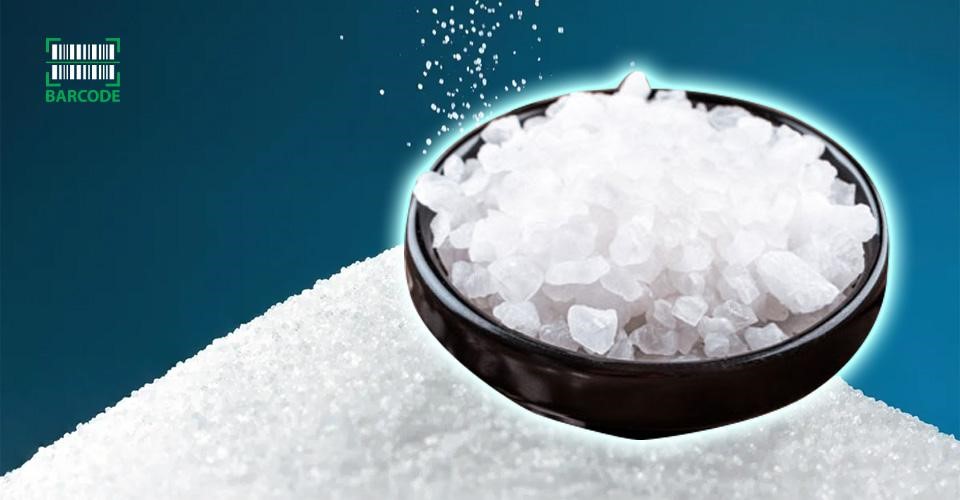
Iodized salt is among the rich sources of iodine
Brands like Tata salt have specifically launched an iodized salt range to address iodine deficiency.
By using this product, vegans can show kindness to animals while ensuring they are getting the iodine they need.
It is always best to check with a healthcare professional about iodine intake requirements, especially for those with a pre-existing thyroid condition.
Vegan Vitamins
Another option for vegans looking to boost their iodine intake is vegan multivitamins that include nutrients.
Iodine supplement benefits are a lot but it's essential to check the label and ensure that the vegan iodine supplement does not exceed the upper limit of 1100 micrograms for adults.
Many vegan vitamins are plant-derived and can be found by searching for brands that are listed in PETA's Beauty Bunnies database to ensure that they are not tested on animals.
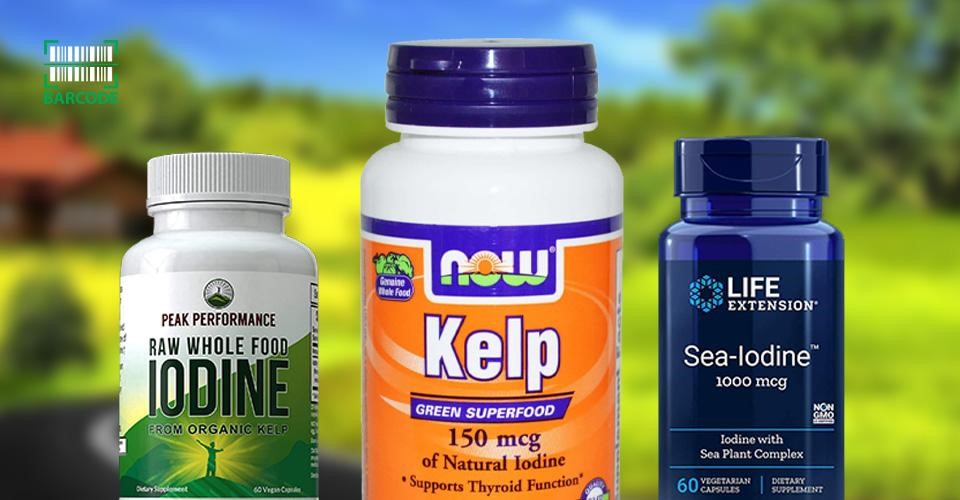
You can take iodine supplement vegan
By incorporating vegan vitamins into their routine, vegans can ensure that they are meeting their iodine requirements without consuming animal-derived products.
It's important to remember that supplements should not replace a balanced and varied diet and that it's best to consult with a healthcare professional before starting any new supplement regimen.
Vitamin-fortified vegan foods
While many may associate the nutrient iodine with animal products, there are plenty of vegan sources of iodine available. One such source is vitamin-fortified vegan foods.
These foods are often fortified with minerals like iodine, making them excellent sources of nutrients.
Even vegan bread can be fortified with iodine in the form of salt.
When shopping for vegan foods, it's essential to check the label and look for the presence of iodine as an ingredient to ensure you are getting enough of this important mineral in your diet.
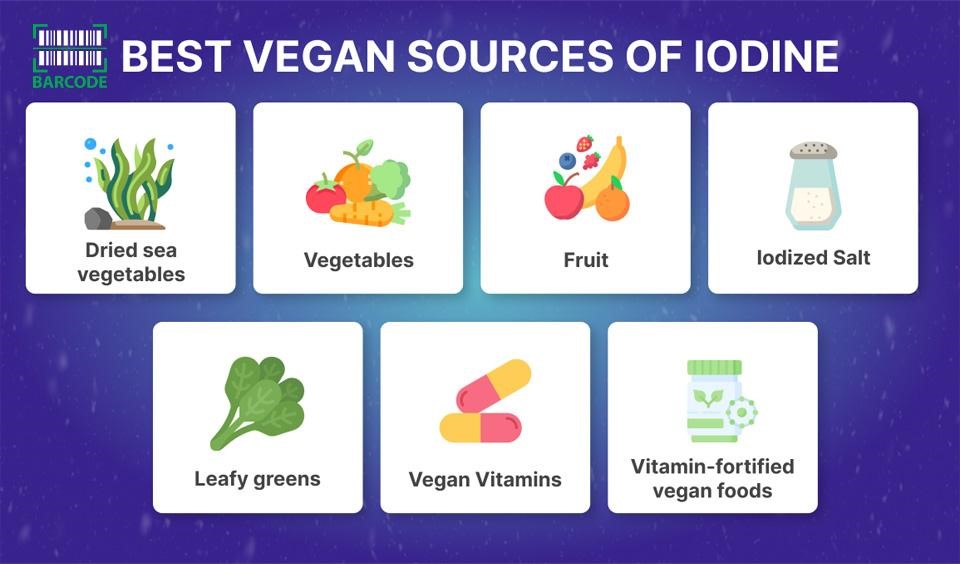
Best iodine sources for vegetarians
Are Those Really All The Vegan Foods That Contain Iodine?
While the foods mentioned above are some of the most common and best iodine sources for vegans, there are other vegan foods that also contain iodine.
However, the iodine content of these foods can vary, so it's essential to eat a varied and balanced diet to ensure adequate iodine intake.
Some other vegan foods that contain iodine include soybeans, seaweed, tempeh, and some fruits like kiwi and pineapple.
Additionally, some vegan protein powders, such as pea protein and hemp protein, may also be fortified with iodine.
Despite that, consuming excessive amounts of iodine can be harmful, so it's crucial to monitor iodine intake and consult with a healthcare professional if you have any concerns.
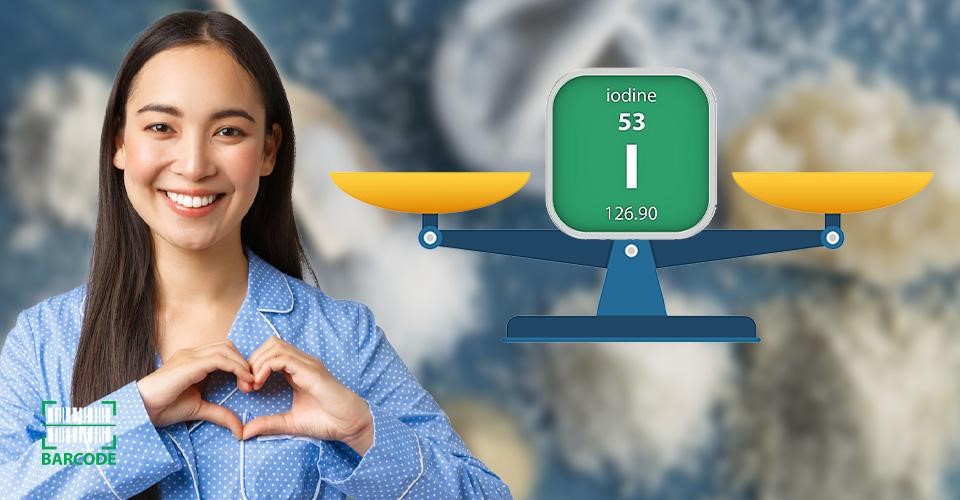
Avoid overconsuming iodine-rich foods
Daily Intake Requirements of Iodine For Vegans
According to Health Canada, the recommended daily intake of iodine for persons aged 19 and over is 150 mcg.
Women's needs fluctuate depending on whether they are pregnant or nursing. Daily doses of 220 mcg are advised during pregnancy, whereas 290 mcg are advised throughout lactation.
There is currently no data to support the notion that vegans require a different iodine intake than omnivores.
As a result, vegans should try to follow the aforementioned intake guidelines.
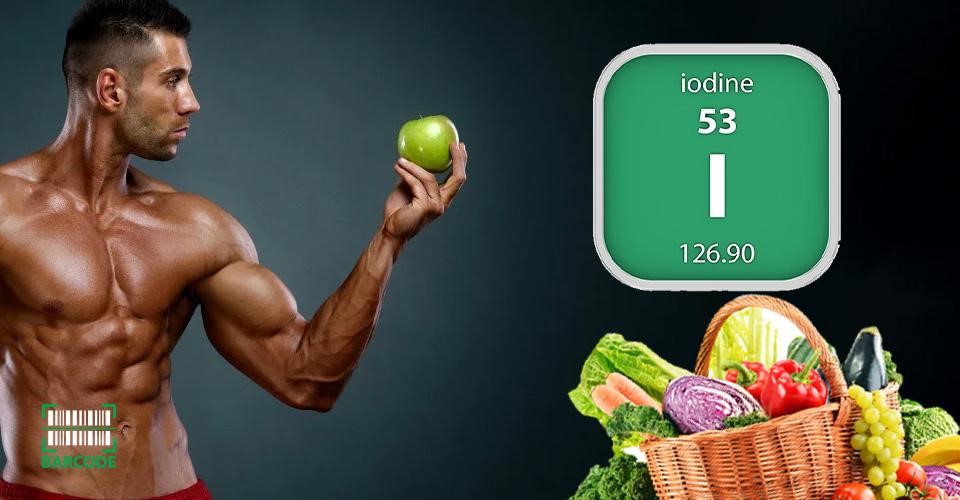
Daily intake requirements of iodine for vegans
Vegans may need extra iodine since many common sources of iodine, such as dairy and fish, are not consumed in a vegan diet.
It's important for vegans to include iodine-rich foods in their diet or consider iodine supplements to ensure they are meeting their daily requirements.
A blood test can be done to measure iodine levels and determine if someone is iodine deficient.
If you suspect you may be iodine deficient or are experiencing symptoms, it's important to consult with a healthcare professional.
Anxiety is not a typical symptom of iodine deficiency.
However, iodine deficiency can lead to hypothyroidism, which can cause symptoms such as fatigue, depression, and difficulty concentrating.
In some cases, anxiety can be a symptom of an overactive thyroid gland, which is sometimes caused by an iodine deficiency.
Conclusion
Incorporating iodine foods vegan into your diet as a vegetarian is crucial for maintaining good health, especially if you're not consuming dairy or seafood. By being mindful of your iodine intake and including these vegan sources of iodine in your diet, you can ensure that you're meeting your nutritional needs and maintaining optimal health as a vegetarian.
Source:
https://www.aerzteblatt.de/int/archive/article/215079
https://www.canada.ca/en/health-canada/services/food-nutrition/healthy-eating/dietary-reference-intakes/tables/reference-values-elements-dietary-reference-intakes-tables-2005.html



7 Comments
Saurabh
I’m going share it on my facebook group and page, much valuable post. Thank You!
Leave a Comment
Your email address will not be published. Required fields are marked *Barcodelive
You’re welcome
Leave a Comment
Your email address will not be published. Required fields are marked *Barcodelive
What are the best vegan iodine sources in your opinion?
Leave a Comment
Your email address will not be published. Required fields are marked *Timothy Edwards
Seaweed
Leave a Comment
Your email address will not be published. Required fields are marked *Dinesh Jain
Agreed. About 50% of the iodine in salt usually evaporates a few weeks after packaging.
Leave a Comment
Your email address will not be published. Required fields are marked *Timothy Smith
Iodized salt. Kelp or potassium iodide can be too much for some people. Those made me hyperthyroid. Even with small amounts
Leave a Comment
Your email address will not be published. Required fields are marked *Ghanshyam Chadha
I take a kelp standardized to 150 mcg, but that's because I don't normally eat salt. Otherwise, I'd just use iodized salt like others suggested
Leave a Comment
Your email address will not be published. Required fields are marked *Leave a Comment
Your email address will not be published. Required fields are marked *